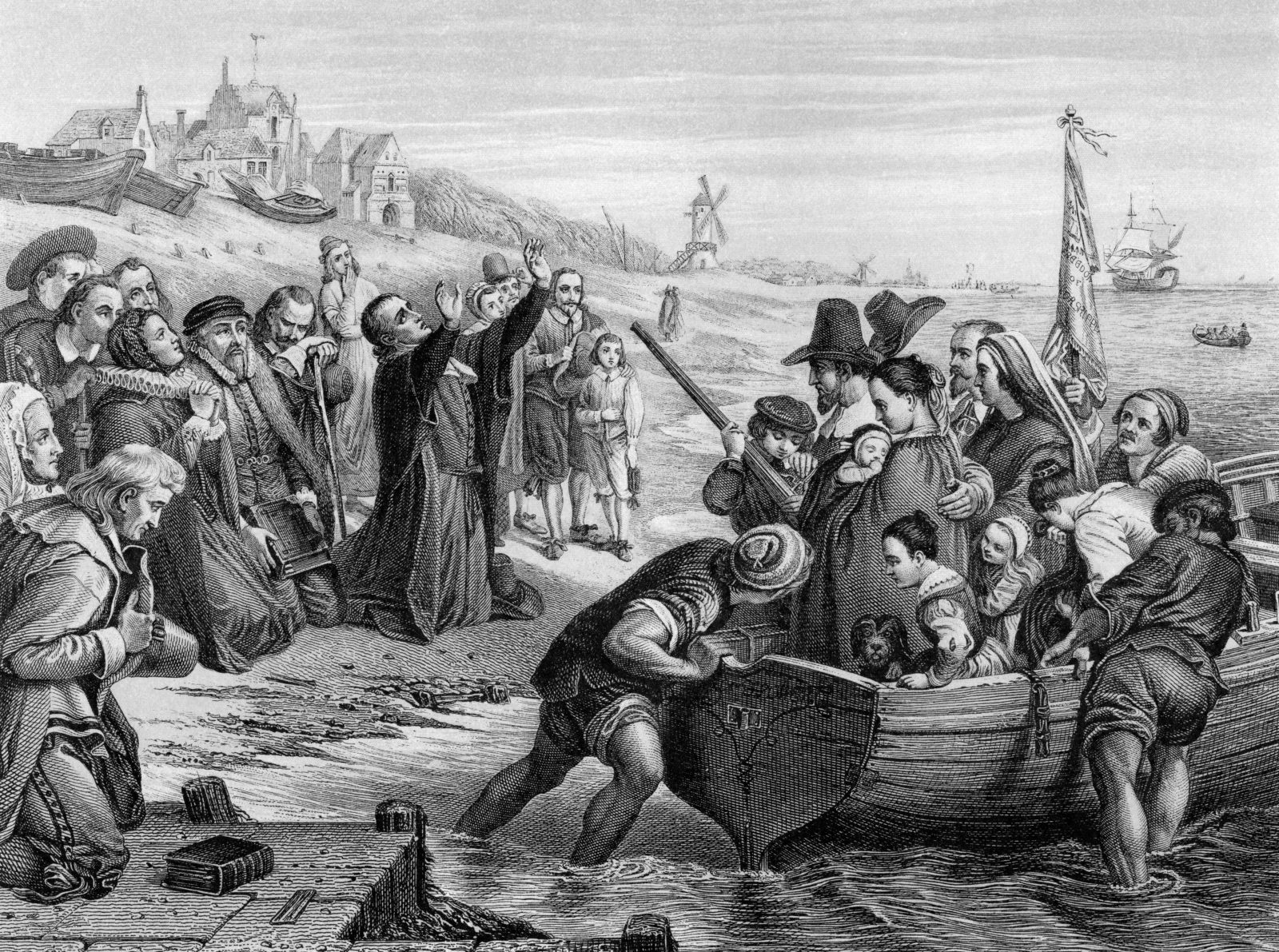I hope all those reading this will have a happy Thanksgiving. Four centuries ago the pilgrims who had survived two winters in Massachusetts—most did not—were happy to be alive, and in a place where they could own land and prosper.
England for many of them was not such a place. Members of the upper class owned land, but most people could only rent it. As I noted during the past two weeks, economic and social changes had left many in poverty. Those settled within a particular parish sometimes survived via charity: One baker, for example, sent loaves to his poor neighbors.
Others benefitted from bequests. Martin Bowes upon his death left 26 shillings (about $440 now) to distribute $8 of bread each Sunday. In 1603 James Marshe left 20 shillings ($340 now) to the poor for distribution by his wife with the advice of churchwardens. In 1606 draper Henry Smith left coarse clothing to fifty poor men, “againste wynter to keepe them warme.” Dame Ramsey left 40 shillings ($680) to help those imprisoned for owing or stealing small amounts.
The homeless were worst off. Thomas Stanley early in the 1600s wrote Stanleyes Remedy: Or, the Way how to reform wandring Beggers… Stanley confessed how he “by lewd company became a highway Robber in Queen Elizabeth’s reign, having his life pardoned.” He said many were like what he had been: at least 19,450 vagrants by hook or by crook obtained food worth $4-5 per day (in today’s currency). Some ended up punished when they merely wanted to work: “I have heard the Rogues and Beggars curse the Magistrates unto their faces, for providing such a Law to whip and brand them, and not provide houses of labour for them … they would work if they could get it.”
Stanley and three others in 1602 gained a decade-long contract from the Lord Mayor of London: They would receive $100,000 each year (in today’s currency) to keep 400 “idle and evil-disposed persons” at work. On April 20 Stanley and his group “took upon them the charge of all the prisoners” at the Bridewell workhouse. Sadly, Stanley found that his costs were greater than the money allocated, so to make up the difference he turned part of Bridewell into a brothel and set up next door “a common tapphouse of stronge beere.” When officials found out they terminated the deal on October 16, less than six months into the 10-year forecast.
Now we come to the Pilgrims of 1620, many of whom had been farmers on rented land in England. Seeking religious freedom and better finances, they went to Holland and made a living in the cloth trade, but the wool market crashed and poverty increased. They were economic immigrants as well as religious refugees.
Their original idea was for everyone to work and share equally the results of their labor. That did not work, as Governor William Bradford wrote (spelling modernized): “The young men that were able and fit for labor and service did repine that they should spend their time and strength to work for other men’s wives and children, without recompense…. wives commanded to do service for other men—dressing their meat, washing their clothes, etc.—deemed it a kind of slavery, neither could husbands brook it.”
The tragic result: Most of the Plymouth colonists died, partly because of wintry weather but also because of too much resentment and insufficient incentives. Bradford reported the change after leaders “assigned to every family a parcel of land. . . This had a very good success; for it made all hands very industrious…. The women now went willingly into the field, and took their little-ones with them to set corn [instead of claiming] weakness and inability.”
Let’s give Bradford the last words: He recognized “the vanity and conceit of Plato and other ancients; — that the taking away of property, and bringing into a common wealth, would make them happy and flourishing; as if they were wiser than God.” The result in Plymouth was “confusion and discontent.” Some still thought economic inequality was not ideal, and Bradford acknowledged that critics might have a point: Apart from sinfulness, having all things in common might be the way to go. Nevertheless, we should follow the Bible’s defense of private property: As Bradford notes, “seeing all men have this corruption in them, God in his wisdom saw another course fitter for them.”

